

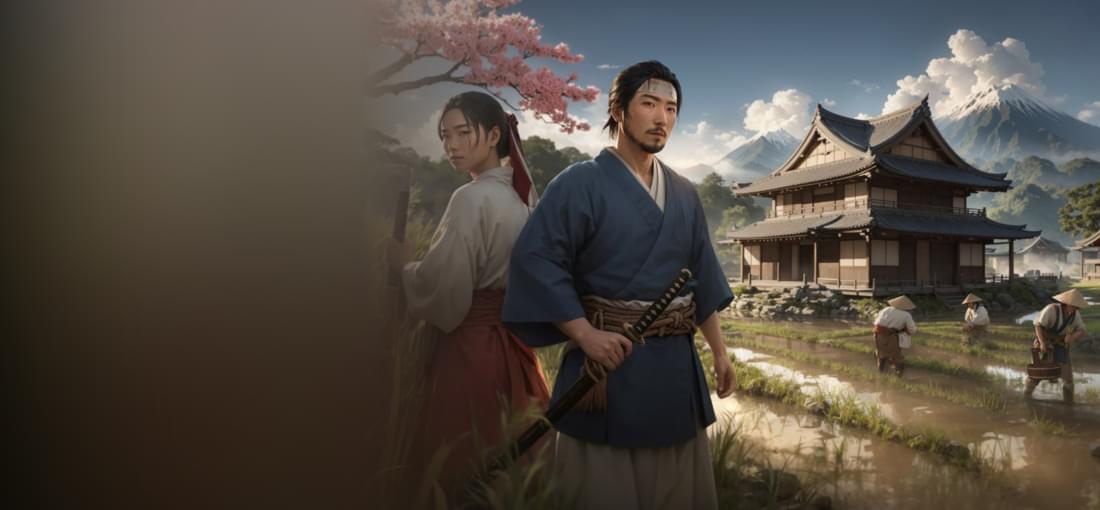
If you're not familiar with the Dynasty series, these games are a mix of survival & management, this entry being based in a specific Japanese period. They cared enough to even do proper Japanese voice-over, not only in cinematics but also in some ambient phrases which adds to the immersion! Now to get to the review, I'm pleasantly surprised by the state the game already is in. They've learned a lot from experience, and I'd go as far as saying that Sengoku Dynasty is a straight upgrade from the last version of Medieval Dynasty! Combat was especially clunky in Medieval, and that's where I've seen the most improvement: as long as you mind your stamina and the state of your weapon, you have many ways in fighting - block/parry, dodge, sprint, or just endure to deliver your own blow! Multitarget engagement can prove a bit painful, but relocate if need be, make use of consumables if you can, and there's definitely a more satisfying experience awaiting you! Village building is a lot more satisfying, against the early Medieval days. You can build extra workstations in a single building to optimize its use, with the example (even when caring about appearances!) of a forager hut capable of housing five forager stations for five different jobs. Management/building/needs menus however leave me dissatisfied. Unless I missed the option, I can't order anything (i.e. asc/descending orders for workers to immediately access the unemployed), I can't decide myself priority consumptions (whether it's villager consumption or production, you can only opt in/out) nor create sub-categories to hide workstations/needs/villagers I know I won't touch anymore. Some building menus run too deep with duplicates (tavern furniture!) and tool consumption is not computed; I found it messy to track each activity past 40 villagers. Still, given how Medieval improved in the past, give them some time: if you enjoy the genre and setting, the current product is already very well worth its price tag!

How long has it been since I last cared about the characters' personal story in a game? As the studios behind This war of mine and Frostpunk, 11 Bit Studios prepared another experience for us with strong moral choices, wrapped into an even stronger storyline! In essence, The Alters are a game mixing management & adventure, with a small survival side. Be ready to embark on Jan Dolski's journey, alone and stranded on a distant planet... alone? Well, not for long actually. Such is the premise, and promise of the Alters: to survive, Jan has to duplicate himself off different life choices simulated by a computer, to enlarge the array of skills available at the base since the sun won't wait long before scorching him... or soon enough, before scorching them. Time is constantly of the essence in this race to avoid a fiery death. Choose wisely, at any turning point, which Alter should be "born"; which tech should you research; what materials are you bringing with you everytime the base moves; what your priorities are, between the mission and your Alters' wishes & opinions. Honestly, it's not the gameplay itself that is strong. Don't look for any combat; you'll only avoid or delete radioactive anomalies sometimes tracking you. Here, it's all about the journey: not as in the "adventure" side of the game, but how will you make Jan's story unfold, which questions will you have him consider, what answers will you lead him to. It's not about another hero - it's about an ordinary man thrown at an exceptional situation. However, don't expect to go through all choices, possibilities, research in a single run. Again, choose wisely at every turn and anticipate some setbacks. Whatever your morals may be, do you really have the means to meet them? I'd wish there were some form of free exploration/movement without time constraint, I really liked that canyon level. Now I'm curious about what's expecting us with the DLC; until then, expect a very worthwhile experience with this game!
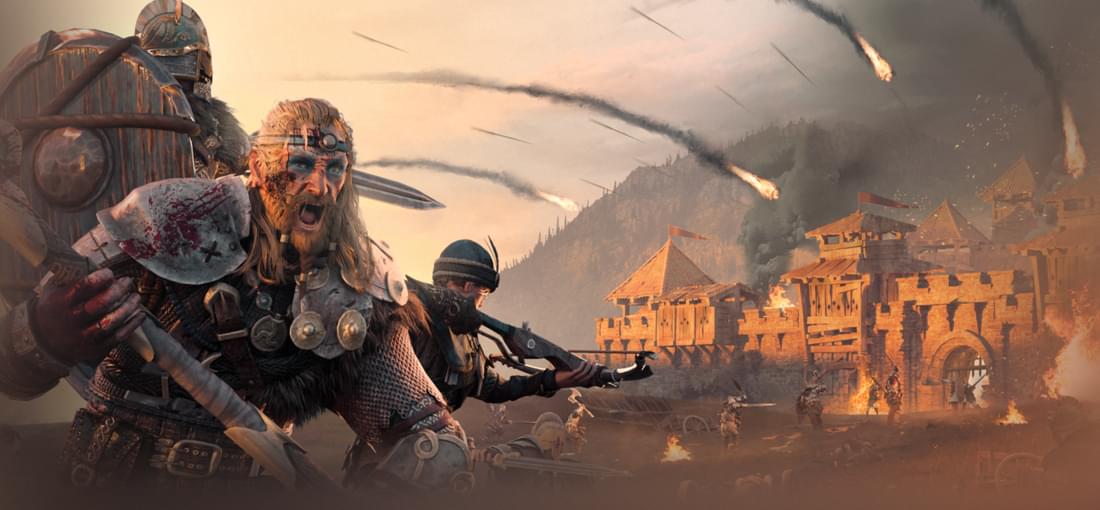
Now THAT feels like a raided county! Really, as dark as the theme may be, it is well-respected and offers quite some immersion into this invasion. Like Pirates of Belerion, the Skelmar Invasion DLC offers a new region, Ormance, which is ravaged by the Skelmars' raids. Unlike Arthes, which is supposed to be plunged into a civil war but the only visual clue are some refugee caravans (and mostly seen in another region), Ormance will have its fields burnt, its slain people lying unburied in the open, and many conflicting interests where each party thinks they know better what future should be shaped for the county. Honestly, I felt like removing one star considering how much hand-holding goes into the abilities and support you may unlock throughout this adventure. However like many tools in the game, they all fall to player decision: you may avoid using them. If you DO use them, you can get free food, free band-wide stats, in-combat assistance ranging from a free kill to extra allies (including some engaged) which won't be factored for the count of enemies; yes, a LOT of hand-holding is possible! Now if you opt out, you can still find some mean opponents (just you fail to finish them, only shaving a good share of their health... it's gonna hurt!), lengthy siege battles which sadly all felt the same but will have you lever your positioning and the manipulation of the rams against your troops' safety, and seemingly several possible endings for the county. You will be able to rebuild the county progressively, which really brings some life to it. This DLC is well-made, gives you your options depending what you're after gameplay-wise, and is definitely worth playing! A quick word of warning though: bug fixing may not pay salaries, but it's overall damaging the game's reputation. At time of writing, a major one (which may or may not happen) can prevent resolving some battles in this DLC. Hopefully the studios will seriously tackle that issue!
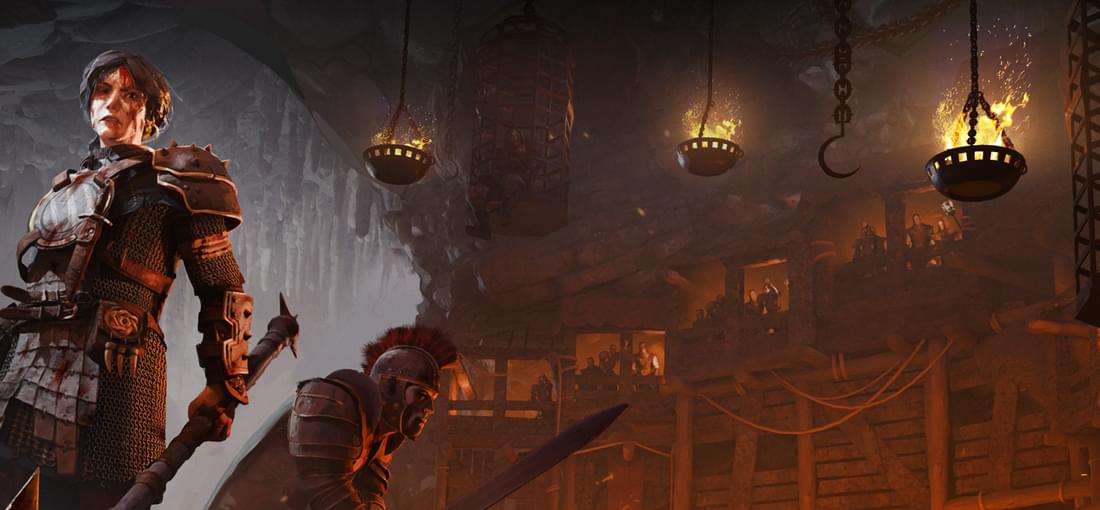
Ahh, the Pits DLC. Now that is a welcome addition if you also enjoy tactical games where there is a real challenge to face! Unlike other DLCs such as Pirates of Belerion or the Skelmar Invasion, the Pits will not give you access to a new region. Rather, using new points of interest on the base game maps, you will gain access to some kind of arena; the Pits differ from classical arenas in offering single battles, rather than a series of 3 ending with a champion. In return for this specific game mode, each battle will be set with an unique rule: you can face your own team, you can suffer from a debuff that'll put out of combat one of your mercenaries if attacked by a kind of opponent, you can suffer terrible penalties from knockback skills, and so on - you will basically need to think again on your approach to each battle, for they all have theirs quirks. The brute force method may not prove to be always efficient: opponents are often very high in armor, health & damages. Quite a change from the groups roaming outside! Each battle will have its own map, with traps - lots of them. They are heavily punishing, so placement is key and can play both ways, meaning it can easily play against you! One battle per location will offer a champion, sometimes on their own, sometimes with a swarm of opponents or nasty mechanics. There are various valuable rewards depending on your progress through each location as well as throughout all Pits; don't miss out on them, they include legendary gear! Now for the small grief I'd have against it (hence four stars), it's the ever-so-dumb AI usually simply running to the closest target (except some specific targeting rules, making the Pits much more interesting). It's easy to bait opponents into traps, so if you're ready to put some of your mercenaries at risk (note that they won't die, the system is based on arenas so they walk out unscathed) several fights become much easier to deal with. Still it's a nice addition worth its salt!
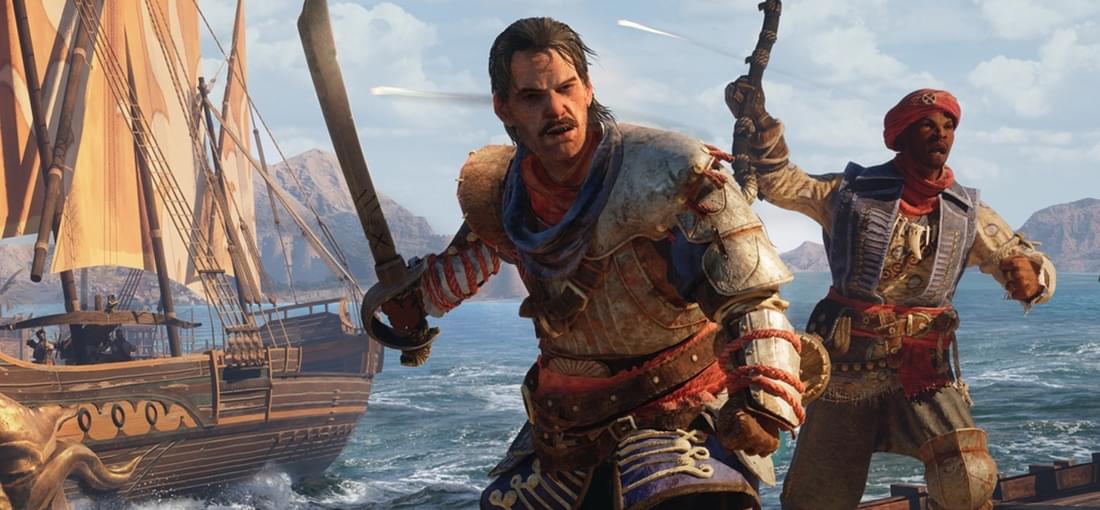
YARRRH, matey! Ye be ready to board the mark?! Overall a very well thought-out and complete DLC, full of content, which only loses one star for me for replayability (more on that below). To be as brief as possible: there is exploration, sailing, boat components to choose from and upgrades, ship-to-ship boarding (especially fun in a storm when the wind throws your characters or enemies off ship!) with some innovative combat maps (again, throw 'em to the sharks!) and if you thought the base game was lacking in ethnics diversity, this DLC brings it. Belerion is basically a full region so you can also expect as much content as every other; the major downside would likely be how much sailing it involves, which brings me to the topic of replayability - it's fun when you discover it, but a new playthrough will feel like more of a chore to uncover so many areas. I'm thinking here especially of the treasures to be found at sea, which you cannot track in any way despite being your main source of upgrades. Belerion also happens to be a bit too convenient food-wise: as long as you have an angler onboard and an early upgrade, you won't run out of food even in extreme difficulty (well, at least consumption is so low that it's no bother). On the opposite though, with how long you spend sailing, your funds fall through easily! Apart from krowns, the difficulty cursor is set on the easier side: you can find a wealth of taverns to have your bard play or recruit companions, more are found for free on missions, and it's easier than ever to avoid the guard. Regardless it's a very satisfying DLC, for which I'd wish it were possible to bring sailing throughout the game world, not just this archipelago! The ten Lords of the Sea bring a bit of liveliness once in a while as your success (from trading, missions, ...) will attract their attention, to the point they'll hunt you down - until you defeat them to earn their unique rewards. Jump at it: this DLC is very worthwhile!
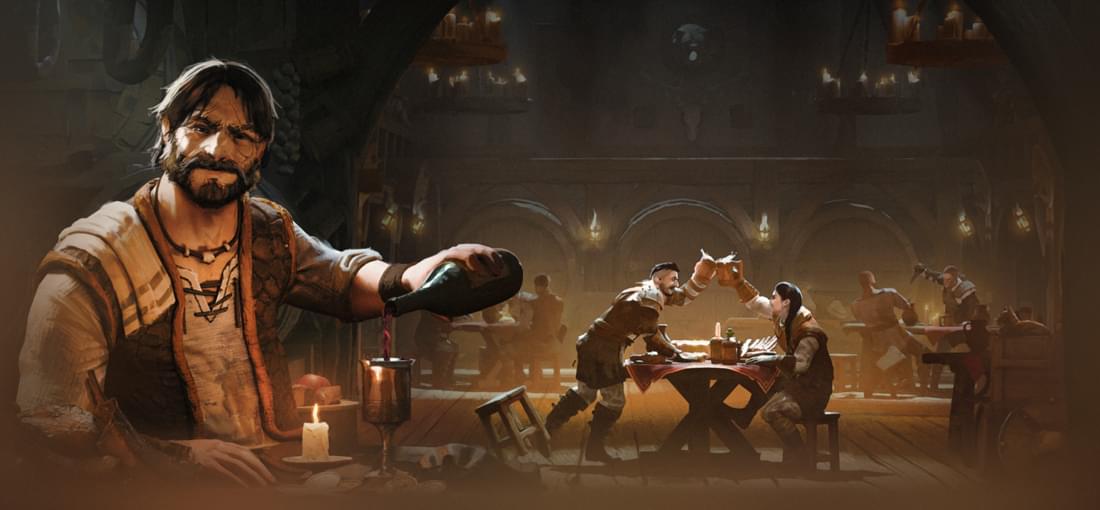
Honestly, although I really enjoyed the base game and want to support it, I'd rather play without that DLC. Fortunately you can either avoid activating it, either leave it running on its own without using its features! As the title reads, the tavern DLC simply kills the difficulty even in extreme mode. Your tavern will quickly grow into quite the cashcow; by the time you've fully upgraded it, you can expect 20K+ revenues over three rests with at least a 5:1 rate, meaning you could technically feed a 4K-expensive band. Only technically because it takes an annoying amount of clicking (100 tavern currency per click), which is the real limitation! The worst part IMO is the free food delivery: they're tied to the signature dish active on the menu, however they almost all have very meaningful bonuses in combat. Not only is it free food, one lets you build rage stacks - forget single-target abilities, just lay down the AoEs to immediately build your +50% damages! Even taken on its own for the management minigame it is, there is no difficulty involved. Everything is made-to-order with fixed costs and unlimited supply with only a small measure of RNG to have some components be more expensive than usual (doesn't change the unlimited supply rule), so you absolutely cannot go into the negative unless you're trying on purpose! If it's not enough, you can train your band's cook/brewer for a while if you find it too slow (or lack materials) with camp production. The bard/thief too, but usually less of an issue. With all that being said, one thing to remind on the positive side is that it all falls to player decision. You can choose to never take coins from the tavern, to avoid the free money; you can get rid of the food delivery, to avoid the free food/buffs. That lets you read the events that were written for that DLC without heavily impacting your playthrough, still know what you're in for: if you intend on using that DLC, it kills even the extreme difficulty!
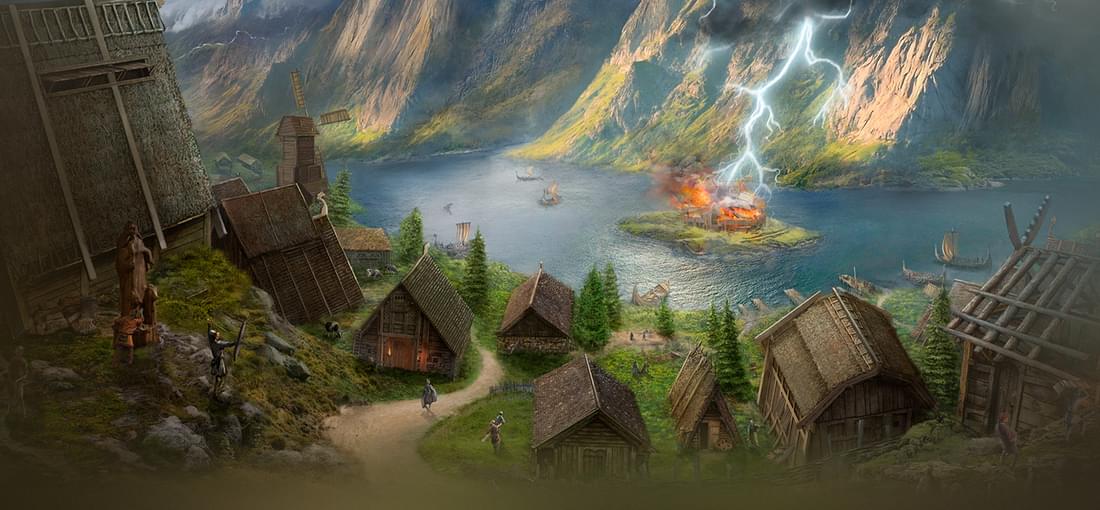
For whoever played Banished, you just can't shake that impression and it's sadly what prevents me from giving it 5 stars: "I've already played this". There's no avoiding comparing both games! Land of the Vikings plays the same way: it's a light city builder mixing in survival elements, and I can't help feeling it tries too hard at following in Banished's footsteps. LotV adds in however a military element (launching/defending against raids) and seemingly diplomatical relations, however I haven't yet had the opportunity to put it at work - some forgettable settlement events happen too. The tech tree's new too, for an impression of progress; it lets you unlock passive bonuses and new facilities as you keep acquiring points, or enable new actions during raids. Said points are acquired through fame, which is a double-edged sword: either you keep acquiring more in successful actions (raids, exploration...) either you keep failing and can't progress. The difficulty is on the easy side though so it's largely forgiving! Some decorations improve buildings' outputs, however it takes so many that either it clutters your screen, either you build the same 25 times on the same spot. The city's more lively, but it's a chore, honestly. The main improvement is the ability to choose which worker goes where, knowing their respective aptitudes (strength, thought, luck, speed) and distance from workplace influences their output. Where it sadly falls IMO is the fast population growth, which keeps me endlessly building new houses as homeless people keep accumulating. Catching up with them takes so much of my time (that, and replacing dead workers) that I end up choosing the fighting event during festivals for casualties, simply to cull my population (to hell with morals)! The game's good at what it does and will probably see updates, so let's be positive; still I can't feel as enthusiastic as I thought I'd be because it's too close to Banished - "I've already played this"!
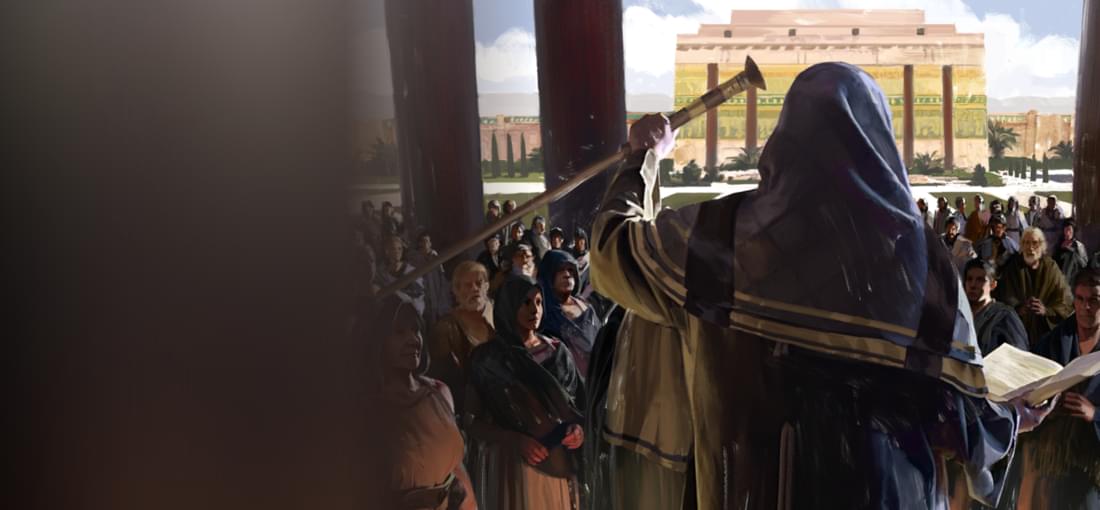
Honestly, the extra stars are mostly there for the work put into writing new events, though some definitely need proofreading in english. Even a non-native speaker/writer like me can spot several typos. In short, this DLC is mainly there to turn on the easy mode. While new events bring more dynamics to the game, they rarely make you run into choices that come at a cost - instead these new events are largely bringing for nothing either positive outcomes, either more positive outcomes: free courtiers, free laws, free unrest removal, free culture gains, free military units... The extra traits are welcome for more diversity, and you're less likely to stall for time until you get your ideal ones since several of the new events force the acquisition of traits onto your leader. Still, the righteous one to reduce unrest over your whole nation does seem to appear often, again it feels as if you turned on the easy mode. On the bright side, the cost of this DLC is low and feels worth the return. Yet everything becomes suddenly far easier as I almost never have anymore a city at unrest lv5 or above; fortunately you can turn the DLC off at the start of a new game, so it's worth testing!
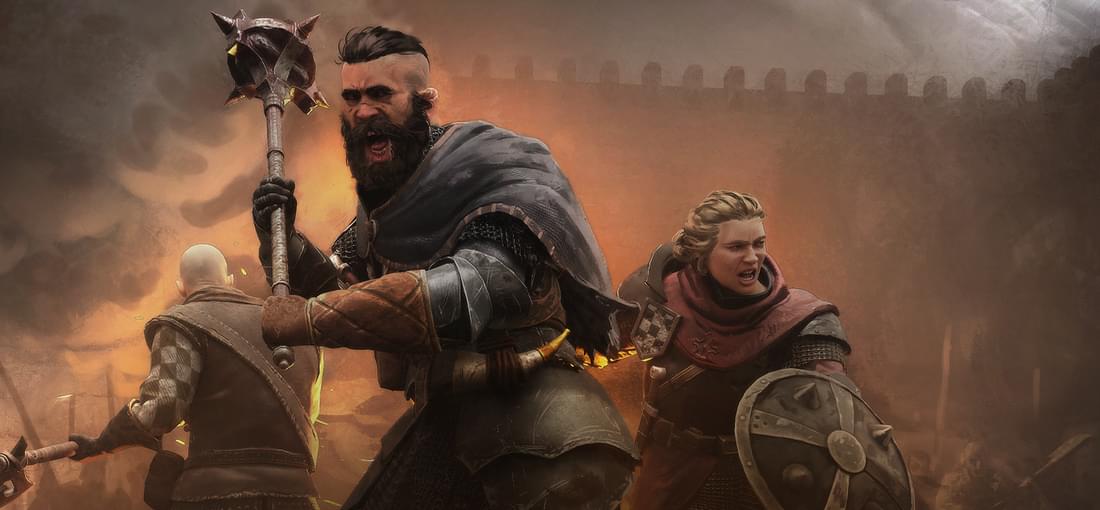
Outstanding. After a few days of playing, that's the word that comes to mind! Wartales is first and foremost a turn, squad-based tactical game blending in ideas from other genres: from RPGs, the character building and choices made during regional story quests (or which of them do you complete) influence the world around. From survival, you have to find time in safer areas to prevent ambushes while resting, with the obvious need to feed and pay your band. And you could fit in the roguelike: in hardest settings, you're very likely to lose people in battle at any tactical mistake, replacing them later on! The game has the great aspect of being customizable: save frequency, level scaling (or not), starting combat classes, your band's shared bonus and malus, survival and combat difficulty. You can pick your characters' jobs (which provide a meaningful stats bonus depending experience) like mining or alchemy; and you can pick traits (permanent bonus or malus) for your starting members. Events can influence each mercenary to make them acquire new traits or titles, or relations between individuals - the latter altering their efficiency in battle or choices in camp events. The camp can also be customized by building a few things: a cooking pot, racks to dry meat or tan skins, and so on! The game has a rather slow pace, yet it's far from boring. Exploration can be eased through some bonuses to run speed, the building of travel posts to enable a fast travel function between them, or the use of pitons to immediately go down from a cliff. The storytelling didn't catch my attention, however it fits its world. Regarding combat, classes determine learnable skills and usable weapons, the latter changing your base attack. Valour points are a limited resource to use other attacks, with resting the only way to recover it. Animals can be captured and used in battle, while prisoners can be worth a bounty at prisons or join your band. In short, a worthwhile experience awaits you!
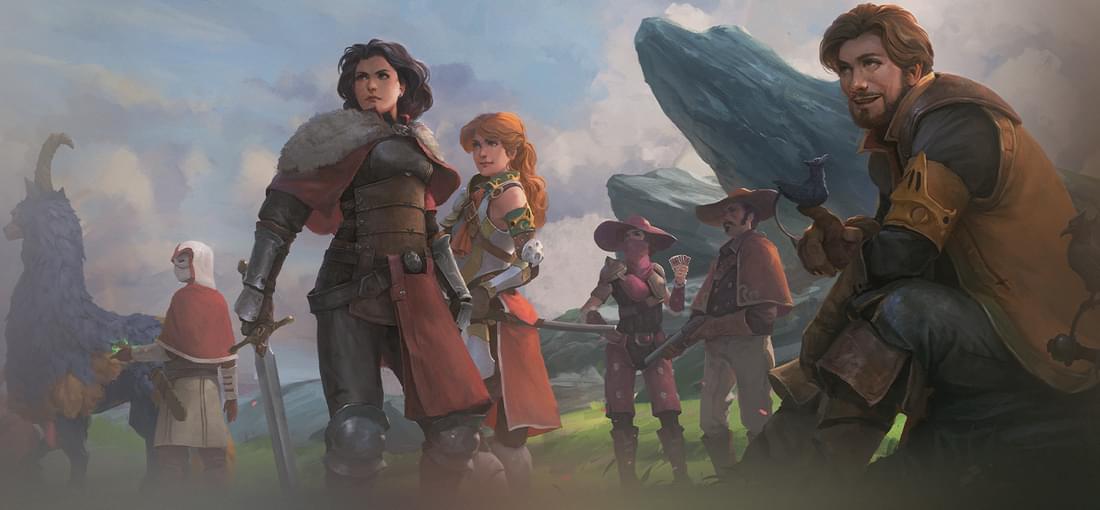
Hard to miss the nostalgia from FFTactics & FFTAdvance when Fell Seal: Arbiter's Mark clearly plays its cards in a similar way. Well, if I did enjoy it overall, there are regardless a few debatable areas which make me think it didn't improve over them! Let's begin with the worst: story. The "epic and mature" advertising is ridiculous, it's another childish Chosen One antic. There are supposedly seven Chosen yet obviously it's all about the One you play. With big bad evil guy trying to bring dystopia to the world, whom I identified after going at most over a quart of the storyline, you can skip the already short scenes. Now, the classes system: you can use the skills of the selected class you play, and an extra set (actions only) of your choice. A single reaction skill & two supports of your choosing as well; sadly most classes feel redundant, you only train them for their permanent stats bonuses after unlocking all their skills. With some supports worth calling must-have, the redundancy is very present. As an example, dual-wielding weapons is the main way to go in dealing damages, except for rare targets! At least to get out of the dual-wielding loop, debuffs make the real challenge... for a time. Midgame (de)buffing & cleansing matters heavily, but endgame is about the gear - most damaging weapons with flying boots and an anti-all-debuffs accessory. DoTs also cannot kill! While you're not forced to send story characters into battle, they can't do any of the side real-timed missions, meaning side chars take them when story ones fight everytime. For this reason, DLC party monsters can be ignored (only one beast had little use for me); at least side chars get exclusive classes otherwise inaccessible to the story ones, which is a good surprise to diversify the gameplay! Despite all that, the formula works well in combat except in the very endgame. While I'd call it a good successor in the genre, its flaws prevent it besting its elders, still it's a good start!